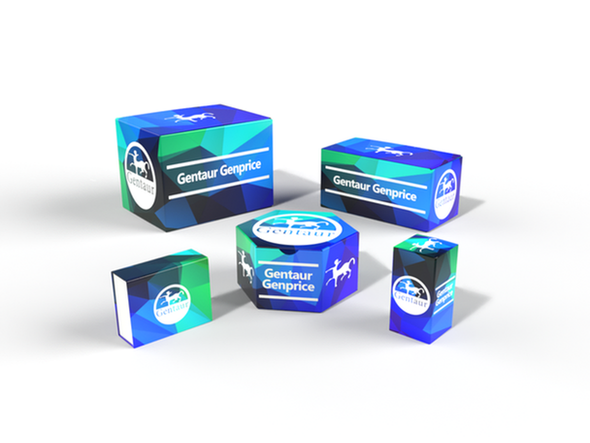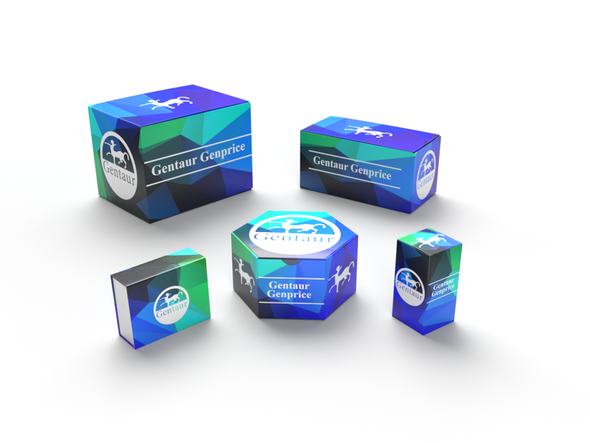740
Rat Undercarboxylated Osteocalcin (ucOC) ELISA Kit | AE59450RA
- SKU:
- 740-AE59450RA
- Availability:
- Usually ships in 5 working days
Description
Rat Undercarboxylated Osteocalcin (ucOC) ELISA Kit | AE59450RA | Gentaur UK, US & Europe Distribution
Species Reactivity: Rat (Rattus norvegicus)
Abbreviation: ucOC
Alternative Name: N/A
Application: ELISA
Range: 15.6-1000 pg/mL
Sensitivity: 6.3 pg/mL
Intra-Assay: ≤5.8%
Inter-Assay: ≤7.6%
Recovery: 1, 02
Sample Type: Serum, Plasma, Other biological fluids
Detection Method: Sandwich
Analysis Method : Quantitive
Test Principale: This assay employs a two-site sandwich ELISA to quantitate ucOC in samples. An antibody specific for ucOC has been pre-coated onto a microplate. Standards and samples are pipetted into the wells and anyucOC present is bound by the immobilized antibody. After removing any unbound substances, a biotin-conjugated antibody specific for ucOC is added to the wells. After washing, Streptavidin conjugated Horseradish Peroxidase (HRP) is added to the wells. Following a wash to remove any unbound avidin-enzyme reagent, a substrate solution is added to the wells and color develops in proportion to the amount of ucOC bound in the initial step. The color development is stopped and the intensity of the color is measured.
Product Overview: Osteocalcin (OC) is the most abundant noncollagenous protein in mature bone where it constitutes 1% to 2% of the total protein. Synthesized by osteoblasts, it is incorporated into the bone matrix. Osteocalcin is a 49-residue protein with three gamma-carboxyglutamic acid residues, at positions 17, 21 and 24. These three residues confer on it a very strong ability to bind to hydroxyapatite. Osteocalcin is a noncollagenous protein found in bone and dentin. It is secreted by osteoblasts and thought to play a role in mineralization and calcium ion homeostasis. It has been stipulated that osteocalcin may also function as a negative regulator of bone formation, although its exact role is unknown.
Stability: The stability of ELISA kit is determined by the loss rate of activity. The loss rate of this kit is less than 5% within the expiration date under appropriate storage condition. The loss rate was determined by accelerated thermal degradation test. Keep the kit at 37°C for 4 and 7 days, and compare O.D.values of the kit kept at 37°C with that of at recommended temperature. (referring from China Biological Products Standard, which was calculated by the Arrhenius equation. For ELISA kit, 4 days storage at 37°C can be considered as 6 months at 2 - 8°C, which means 7 days at 37°C equaling 12 months at 2 - 8°C) .






